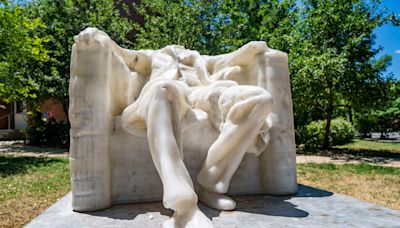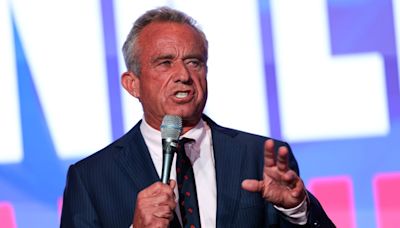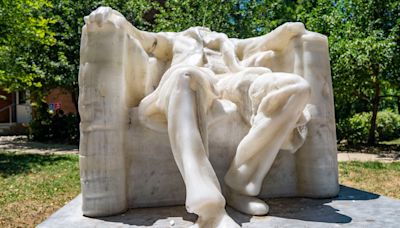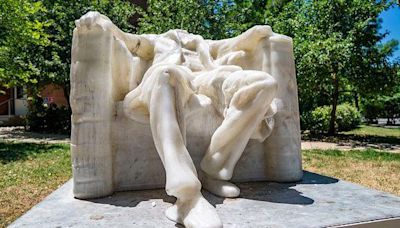Search results
Abraham Lincoln ( / ˈlɪŋkən / LING-kən; February 12, 1809 – April 15, 1865) was an American lawyer, politician, and statesman who served as the 16th president of the United States from 1861 until his assassination in 1865.
1 day ago · Abraham Lincoln (born February 12, 1809, near Hodgenville, Kentucky, U.S.—died April 15, 1865, Washington, D.C.) was the 16th president of the United States (1861–65), who preserved the Union during the American Civil War and brought about the emancipation of enslaved people in the United States.
Oct 29, 2009 · Abraham Lincoln, a self-taught lawyer, legislator and vocal opponent of slavery, was elected 16th president of the United States in November 1860, shortly before the outbreak of the Civil War.
The presidency of Abraham Lincoln began on March 4, 1861, when Abraham Lincoln was inaugurated as the 16th president of the United States, and ended upon his assassination and death on April 15, 1865, 42 days into his second term.
Jul 14, 2023 · President Abraham Lincoln freed enslaved people and led the Union during the Civil War. Learn about his birthday, height, election, assassination, and more.
Abraham Lincoln became the United States’ 16th President in 1861, issuing the Emancipation Proclamation that declared forever free those slaves within the Confederacy in 1863.
4 days ago · Abraham Lincoln - The Presidency, Crittenden Compromise, Fort Sumter: After Lincoln’s election and before his inauguration, the state of South Carolina proclaimed its withdrawal from the Union. To forestall similar action by other Southern states, various compromises were proposed in Congress.
Abraham Lincoln, (born Feb. 12, 1809, near Hodgenville, Ky., U.S.—died April 15, 1865, Washington, D.C.), 16th president of the U.S. (1861–65). Born in a Kentucky log cabin, he moved to Indiana in 1816 and to Illinois in 1830.
Scholarly essays, speeches, photos, and other resources on Abraham Lincoln, the 16th U.S. president (1861-1865), including information about the Civil War, the Emancipation Proclamation and his assassination.
As president, Lincoln built the Republican Party into a strong national organization and rallied most of the northern Democrats to the Union cause. On January 1, 1863, he issued the Emancipation Proclamation, declaring that all enslaved people in states that were still in rebellion would henceforth be free.






